Check out the exciting new profile for Giro d’Italia stage 16 after Gavia cut over safety concerns
The queen stage has been redesigned but should still be a thriller
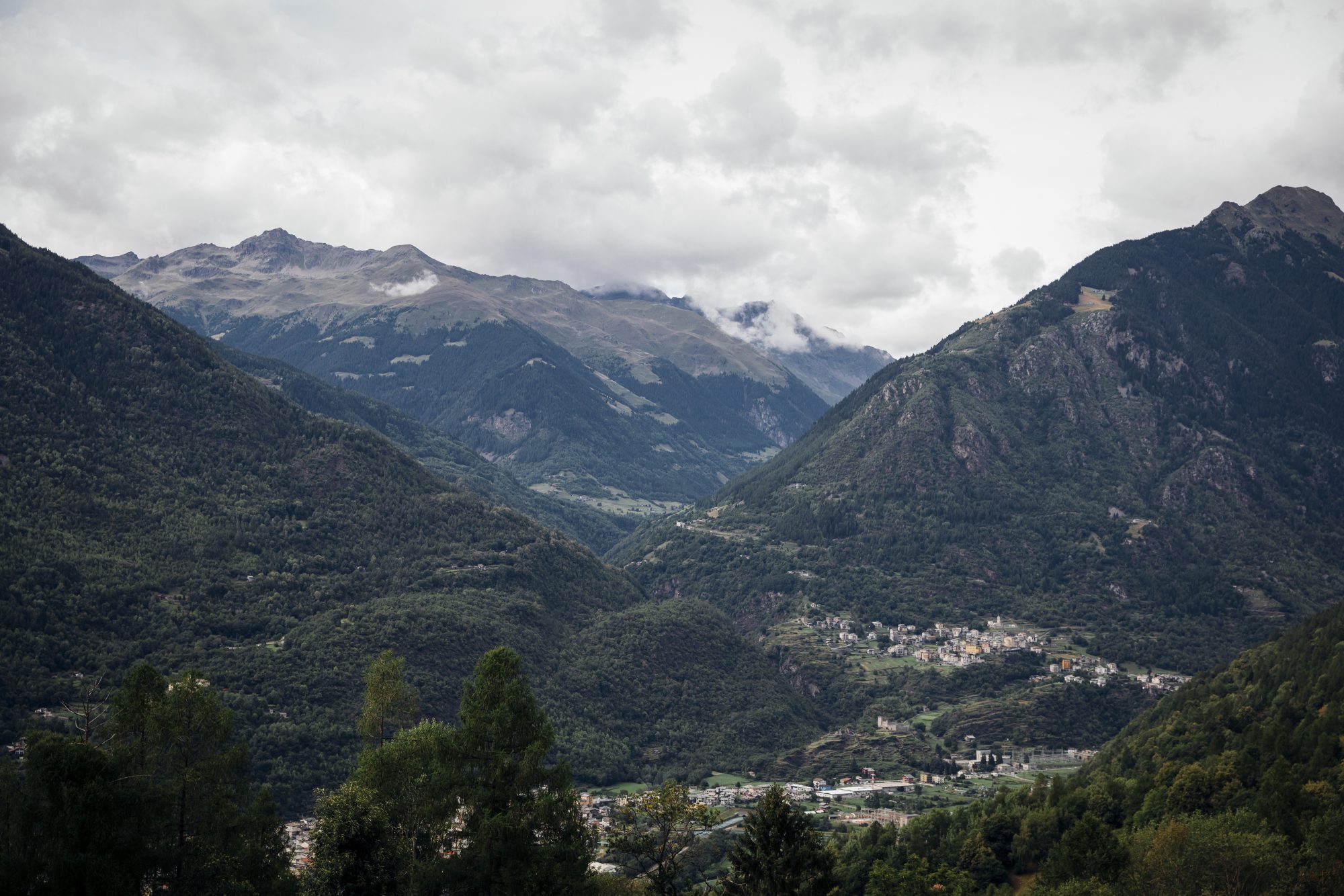

Cycling fans may have been disappointed by the news that the Gavia climb has been cut from the Giro d’Italia, but the queen stage is still expected to be a thrilling spectacle.
The course for stage 16 has been redesigned mid-race over safety concerns about the Gavia, with snow and icy descents posing a hazard to the peloton.
Race director Mauro Vegni announced on Saturday (May 25) that the Gavia Pass, set to be the highest climb of the 2019 Giro d’Italia, would be removed from the route.
The new parcours is still a punishing 194km run from Lovere to Ponte di Legno in the Alps in northern Italy.
Climbing kicks off immediately, with two uncategorised rises in the opening 45km, before the descent that will carry the peloton to the first real test of the day.
After a long slightly uphill run the third category Cevo, the replacement for the Gavia in the Giro, is 10.6km long with an average of 5.9 per cent and hitting a maximum of 10 per cent, with the crest coming 89km into the stage.
Get The Leadout Newsletter
The latest race content, interviews, features, reviews and expert buying guides, direct to your inbox!
Another sharp descent is followed by the 14km rise to Aprica, which is an average of 3.4 per cent but includes some serious ramps up to 15 per cent in the opening kilometre.
That climb tops out around 70km from home, and sets up the race for the most daunting moment of the race so far – the legendary Mortirolo.
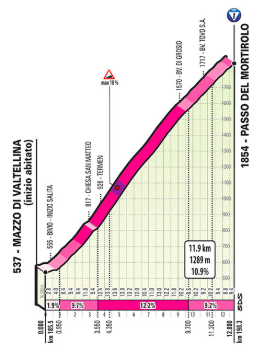
The pass is 11.9km long with a monstrous average gradient of 10.9 per cent.
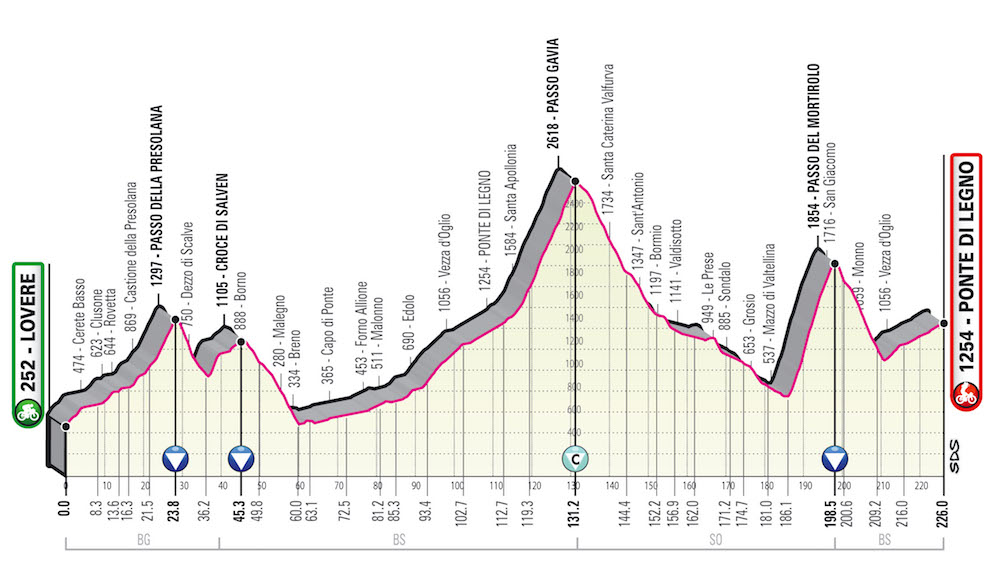
After opening with a 9.7 per cent section, the climb ramps up to 12.2 per cent average for the middle 5km, including the maximum of 18 per cent, before mellowing slightly to 9.2 per cent in the final 3km.
>>> ‘Simon Yates’s Giro is far from over’ says Mitchelton-Scott team director Matt White
The Mortirolo is likely to be the last opportunity in the stage for chancers to launch an explosive attack, as things get easier from the summit with 30km left to race.
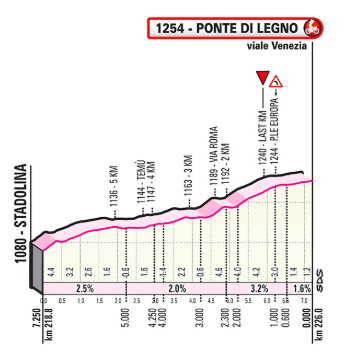
After the descent, the final climb to the finish is uncategorised and is very shallow compared to the previous tests.
Lasting 8km with gradients at around two and three per cent, the rise to Ponte di Legno is not steep enough for attacks but could be perfect for any frontrunners trying to hold off a chase.

Thank you for reading 20 articles this month* Join now for unlimited access
Enjoy your first month for just £1 / $1 / €1
*Read 5 free articles per month without a subscription

Join now for unlimited access
Try first month for just £1 / $1 / €1
Alex Ballinger is editor of BikeBiz magazine, the leading publication for the UK cycle industry, and is the former digital news editor for CyclingWeekly.com. After gaining experience in local newsrooms, national newspapers and in digital journalism, Alex found his calling in cycling, first as a reporter, then as news editor responsible for Cycling Weekly's online news output, and now as the editor of BikeBiz. Since pro cycling first captured his heart during the 2010 Tour de France (specifically the Contador-Schleck battle) Alex covered three Tours de France, multiple editions of the Tour of Britain, and the World Championships, while both writing and video presenting for Cycling Weekly. He also specialises in fitness writing, often throwing himself into the deep end to help readers improve their own power numbers. Away from the desk, Alex can be found racing time trials, riding BMX and mountain bikes, or exploring off-road on his gravel bike. He’s also an avid gamer, and can usually be found buried in an eclectic selection of books.
-
 7-Eleven returns to the peloton for one day only at Liège-Bastogne-Liège
7-Eleven returns to the peloton for one day only at Liège-Bastogne-LiègeUno-X Mobility to rebrand as 7-Eleven for Sunday's Monument to pay tribute to iconic American team from the 1980s
By Tom Thewlis
-
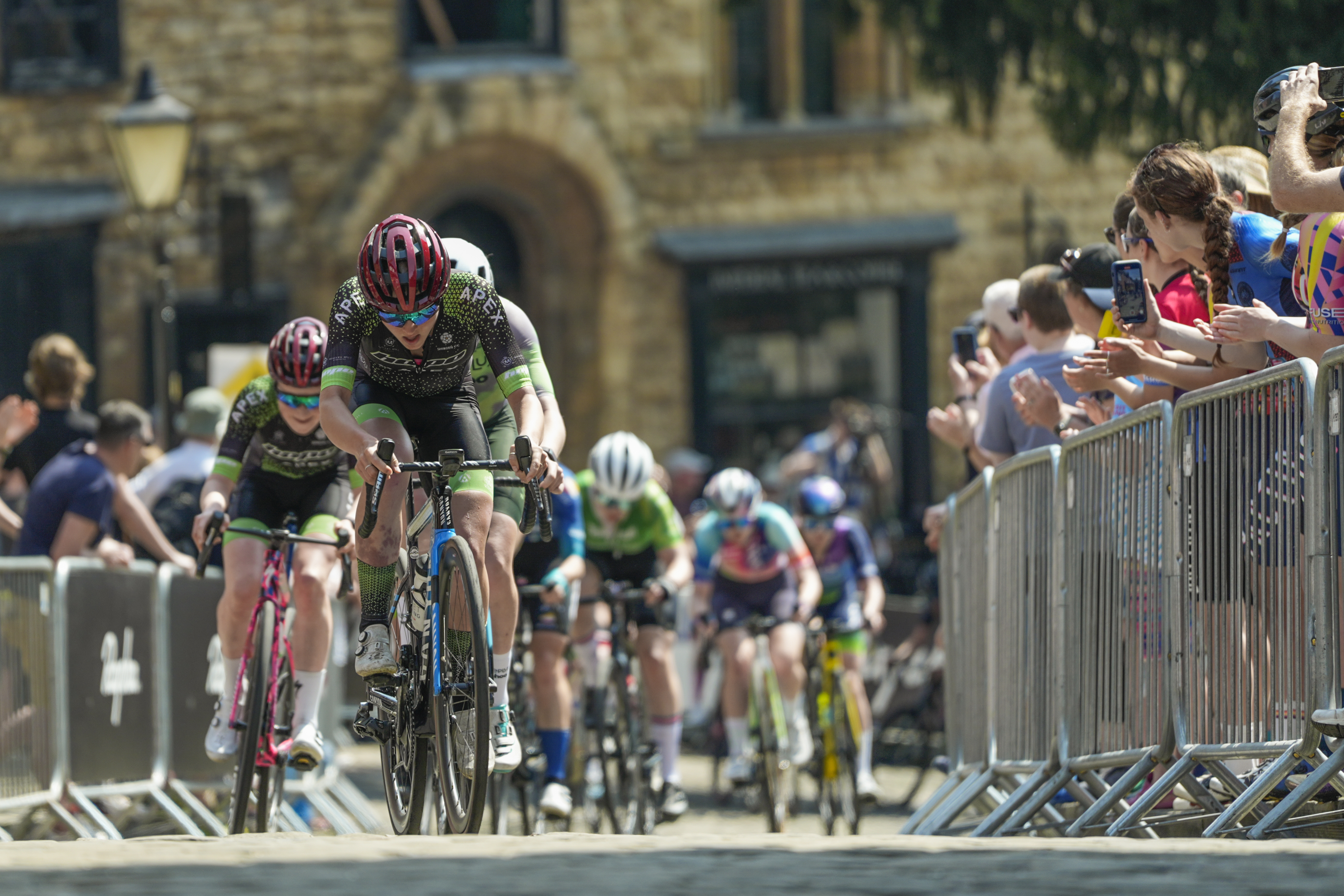 Rapha launches the Super-League, a new British road racing points competition
Rapha launches the Super-League, a new British road racing points competition16 events make up the Rapha Super-League, including crits and road races, with overall winners crowned
By Adam Becket